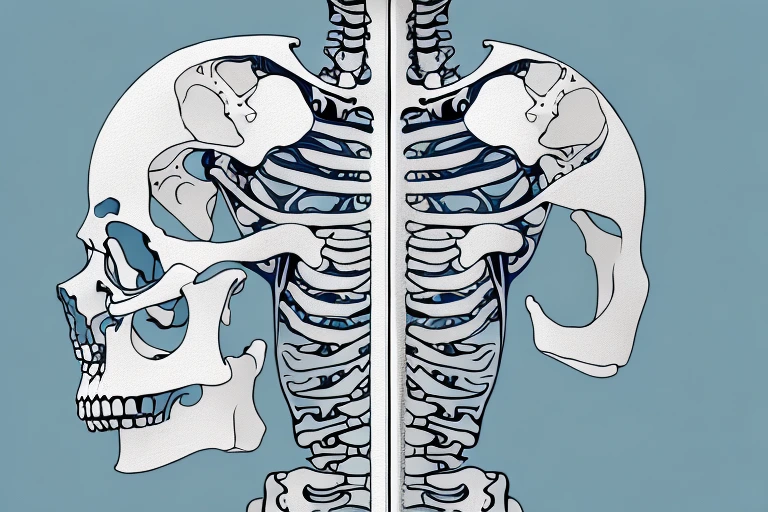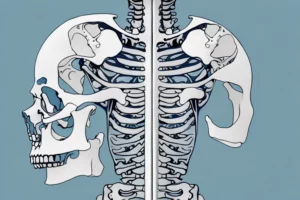As you reach your thirties, you enter a new stage of life.
With this transition comes many changes in your life, including changes to your health.
There are a number of common health conditions that affect women in their 30s and beyond, such as Menopause and Osteoporosis.
We’ll look at what these conditions are, their symptoms and treatments, and how can you maintain long-term good health.
What is Menopause?
Menopause is a natural biological process in which a woman’s ovaries stop producing eggs, and her Estrogen levels decrease.
Menopause typically begins in a woman’s late 40s or early 50s.
As Estrogen levels drop, it can lead to a range of physical and psychological symptoms, including hot flashes, night sweats, mood swings, and more.
In addition to the physical and psychological symptoms, menopause can also cause changes in a woman’s sexual health.
This can include a decrease in libido, vaginal dryness, and difficulty achieving orgasm.
It is important for women to talk to their doctor about any changes they are experiencing, as there are treatments available to help manage these symptoms.
Menopause can also increase a woman’s risk of developing certain health conditions, such as osteoporosis, heart disease, and urinary incontinence.
Women need to maintain a healthy lifestyle, including regular exercise and a balanced diet, to help reduce their risk of developing these conditions.
Symptoms of Menopause
The most common symptom of menopause is irregular or absent periods.
Other symptoms may include hot flashes, night sweats, fatigue, mood swings, changes in hair and skin texture, decreased libido, insomnia, and vaginal dryness.
Some women may also experience changes in their appetite, feelings of depression or anxiety, forgetfulness, and changes in body weight.
In addition to the physical symptoms of menopause, some women may also experience emotional changes.
These can include feelings of sadness, irritability, or difficulty concentrating.
It is important to talk to your doctor if you are experiencing any of these symptoms, as they can help you manage them and provide support.
Managing the Symptoms of Menopause
If you’re experiencing menopausal symptoms, there are ways to help manage them.
Exercise, yoga, and meditation are all great ways to manage your mood and stress levels.
Eating a balanced diet and taking vitamin supplements can also help minimize symptoms like hot flashes and night sweats.
If you’re experiencing vaginal dryness, there are a number of products available that can help with this.
Hormonal therapy is also available to help manage symptoms; however, it can have some serious side effects, so consult your doctor before taking any medication.
Along with the above treatments, there are also lifestyle changes that can help manage menopausal symptoms.
Avoiding caffeine and alcohol can help reduce hot flashes and night sweats. Getting enough sleep and reducing stress can also help.
Additionally, wearing loose-fitting clothing and avoiding hot environments can help reduce the intensity of hot flashes.
It’s important to remember that menopause is a natural process and that it’s possible to manage the symptoms.
Talk to your doctor about the best treatment options for you and make sure to take care of yourself during this time.
With the right lifestyle changes and treatments, you can manage your menopausal symptoms and live a healthy and happy life.
What is Osteoporosis?
Osteoporosis is a condition in which the bones become weak and porous.
This condition occurs when the rate at which new bone is created is slower than the rate at which old bone is lost.
As a result, bones become fragile and can easily fracture or break.
Osteoporosis is most common in post-menopausal women, but it can also affect men and younger women.
Risk factors for developing osteoporosis include a family history of the condition, a sedentary lifestyle, smoking, and excessive alcohol consumption.
Additionally, certain medications, such as corticosteroids, can increase the risk of developing osteoporosis.
Causes and Risk Factors of Osteoporosis
The most common cause of osteoporosis is age. As we age, we naturally lose bone density and our bones become weaker.
Other risk factors for osteoporosis include smoking, poor nutrition, lack of physical activity, taking certain medications such as corticosteroids or thyroid hormones, and excessive alcohol consumption.
In addition to age, gender, and lifestyle factors, there are certain medical conditions that can increase the risk of developing osteoporosis.
These include Celiac disease, Inflammatory Bowel disease, Rheumatoid Arthritis, and Chronic Kidney disease. People with a family history of osteoporosis are also at an increased risk.
It is important to note that osteoporosis is a preventable condition.
Eating a balanced diet, getting regular exercise, and avoiding smoking and excessive alcohol consumption can help to reduce the risk of developing osteoporosis.
Additionally, taking calcium and vitamin D supplements can help to maintain bone health.
Diagnosing Osteoporosis
There are a number of tests available to diagnose osteoporosis. The most common test is a Bone Mineral Density (BMD) scan.
This test measures the amount of mineral in your bones to determine if there is an increased risk of fracture.
Other tests include X-rays, CT scans, Ultrasound scans, or specialized scans that measure calcium in the bones.
Your doctor may also order a blood test to measure the levels of Calcium, vitamin D, and other minerals in your body.
These tests can help determine if you have a deficiency in any of these nutrients, which can contribute to the development of osteoporosis.
Your doctor may also recommend a physical exam to check for signs of osteoporosis, such as a stooped posture, a decrease in height, or a decrease in muscle mass.
These physical signs can help your doctor determine if you are at risk for developing osteoporosis.
Treatments for Osteoporosis
The main goal of treating osteoporosis is to prevent fractures.
This can be done by increasing bone density through lifestyle changes such as exercise, eating a balanced diet, avoiding smoking and excessive alcohol use, taking calcium and vitamin D supplements, and avoiding certain medications.
Medications called bisphosphonates are sometimes prescribed to treat osteoporosis. These medications slow down the rate at which old bone breaks down.
Along with lifestyle changes and medications, there are other treatments available for osteoporosis.
Hormone replacement therapy (HRT) is sometimes used to treat postmenopausal women with osteoporosis. HRT can help reduce the risk of fractures by increasing bone density.
Other treatments include Parathyroid Hormone Therapy, which helps to increase bone formation, and Calcitonin, which helps to reduce bone breakdown.
Preventing Osteoporosis
You can also take steps to reduce your risk of developing osteoporosis.
This includes leading an active lifestyle with regular weight-bearing and strength-training exercise; getting enough calcium and vitamin D; avoiding smoking and excessive alcohol use; getting sufficient rest; and talking to your doctor about the potential benefits of taking supplements with calcium and vitamin D.
Eating a balanced diet is also important for preventing osteoporosis.
Foods that are high in calcium and vitamin D, such as dairy products, leafy green vegetables, and fortified cereals, can help to strengthen bones and reduce the risk of osteoporosis.
It is also important to get enough protein in your diet, as protein helps to build and maintain strong bones.
You must get regular check-ups done with your doctor to monitor your bone health.
Your doctor can assess your risk of developing osteoporosis and recommend lifestyle changes or medications to help prevent it.
By taking these steps, you can help to reduce your risk of developing osteoporosis and maintain strong, healthy bones.
Other Health Conditions Affecting Women Over 30
In addition to Menopause and Osteoporosis, there are other health conditions that commonly affect women over 30.
These include Endometriosis, Fibrocystic breast changes, Uterine fibroids, Heart disease, and certain types of Cancer.
A healthy lifestyle and regular check-ups with your doctor can help reduce your risk of developing these conditions.
Taking Control of Your Health After 30
After 30, it’s important to be proactive about your health.
This means recognizing the signs and symptoms of common health conditions for women in their 30s, such as menopause and osteoporosis, knowing the risk factors for them, and talking to your doctor about them.
You also need to follow a healthy diet that includes lean proteins, fruits and vegetables, whole grains, healthy fats and oils, and limiting processed foods.
Exercise is important for keeping your body healthy – aim for at least 30 minutes of exercise 5 days a week.
Finally, make sure you get enough sleep – at least 7-8 hours a night – to keep your energy levels up and your mood stable.




